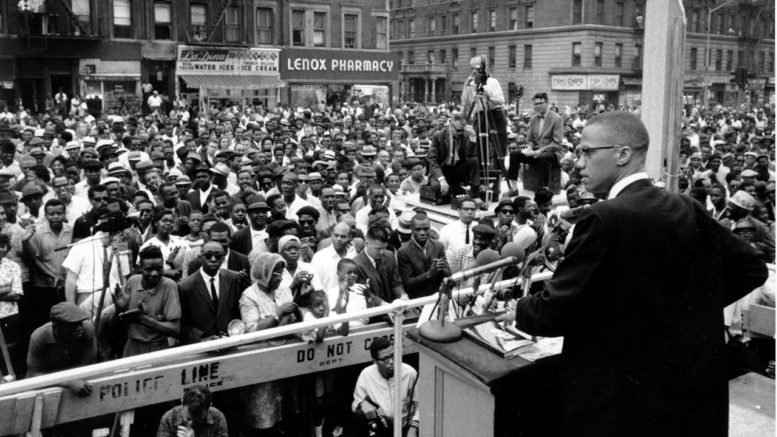By Shareef Muhammad
“Invite to the way of your Lord with wisdom and good instruction, and argue with them in a way that is best.” — 16:125
Islam is not an ideological vacuum; and as Muslims, our practice of faith cannot be separated from political, cultural and historical realities. Before Prophet Muhammad (saws) sent a companion to give da’wah (invite people to Islam) to a people, he would give instructions to the person of the nature of that society. Why? Because our Prophet (saws) understood, as we must understand, that social mores coupled with historical and cultural context was necessary to give da’wah that is relevant and effective.
As Black Muslims in America, we have needs that are endemic to our collective experiences. Centuries of enslavement, nearly another century of Jim Crow laws, and pervasive racially exclusionary practices have affected more than just the psyche of Black people in America — this history colors our culture and our politics. Many may wince at the term “Black Muslim” and point out that one’s skin color is not a factor in the eyes of Allah (Subhanahu wa ta’ala) and not something that will determine the fate of our souls. They are correct. It is also true that ignoring race and ethnicity in favor of a “color-blind” approach to Islam is an ideal far removed from reality; and one that only seems to apply to Black Muslims.
The Black Da’wah Network, a Muslim Empowerment Initiative, was established in July 2018 in the spirit and tradition of Black liberation theology. Our goal is to produce Islamic educational content for Black communities and to advance the practice of Islam in Black America because we believe that Islam is liberation; it is the solution, the remedy and the answer to what ails our communities. We believe this work is vitally important in our current social context as the divide between activism and theology widens. It has become commonplace in some “conscious” circles to impugn the cultural bonafides of Islam in Black America through the proliferation of Black Orientalist thought which castigates Islam as an anti-Black, Arab centered religion. Nowhere is this exhibited more than with competing representations of El Hajj Malik El Shabazz (Malcolm X), the ultimate symbol of both conscious activism and the Black Muslim legacy.
Although Afrocentrists, Pan-Africanists, Black Nationalists, and the “Conscious Community” adore our Brother Malcolm for his unapologetic commitment to Black people and his fearless criticism of white supremacy, they take great pains to decenter his equally unapologetic commitment to Islam and to deny how integral his faith was to his worldview. For them, Islam complicates their love for Malcolm, which is rivaled only by their antipathy toward Islam in particular and religion in general. If Islam is an Arab religion fundamentally at odds with traditional African beliefs and the Black experience in American, how can a devoutly religious Black Muslim be the gold standard for Black liberation?

At the other end of the spectrum, non-Black Muslims in America canonize a sanitized version of Malcolm that celebrates his importance as a Muslim figure in American society, but de-centers his racial politics and his specific and intentional focus on the empowerment of Black people. For those seeking acceptance and legitimacy from white America, Malcolm’s pro-Blackness does not conform to their integrationist goals. They disengage the man who they epitomize as one of the consummate examples of American Islam from the fact that he also advocated for an independent Black nation.
The historical revisionism of Malcolm X is one of the most salient examples of how the unique voice of Black Muslims in America has been diluted. For Malcolm, and for many Black Muslims, the practice of Islam in America is both spiritual and political. The Black Da’wah Network is working for the resurgence of Islam in Black America that centers the empowerment of oppressed communities by communicating the relevancy of the Seerah (The biography of the life of Prophet Muhammad), Peace be upon him) to Black political thought. We believe that the Seerah, if interpreted through a lens of Black liberation theology, can guide disenfranchised Black folks out of traumatic post-enslavement.
With that as a goal, The Black Da’wah Network is ready to challenge both orientalist and anti-Islamic manifestations of Afrocentric thought. We are developing da’wah training programs rooted in the historical and political realities of Islam in Black American communities. In response to antipathy towards Islam in the conscious community, The Black Da’wah Network has produced a visual work titled “The Inescapable Muslim Roots of the Black Radical Tradition,” prepared a guidebook providing instruction refuting Afrocentric criticisms of Islam and launched a podcast series “How To Give Da’wah to Afrocentrists.” In rebuttal to The Destruction of Black Civilizations by Chancellor Williams, we have produced a visual series on the white colonial sources undergirding the book’s outlook on Islam. We have also taken to task in our article, “Cognitive Dissonance of Afrocentricity.”
We welcome Black Muslim Imams, religious scholars, activists, thought leaders, artists, academics and all those who believe in the liberation of Black folks through Islam to join us. The way to stand out in a symphony of disjointed voices is to speak to people with a clear message that resonates in their hearts and minds, a message that is rooted in reality with an eye towards a better future. Become part of the work for the rise and resurgence of Islam in Black America…Volunteer with the Black Dawah Network.
The Messenger of Allah (peace and blessings be upon him) said,
“He who calls others to follow the Right Guidance will have a reward equal to the reward of those who follow him, without their reward being diminished in any respect on that account.” — Muslim
Professor Shareef Muhammad specializes in African American Islam, history, and social political theory. He has taught history at Georgia State University and Islamic studies at Spelman University. Professor Muhammad holds a masters in history from Kent State University.

